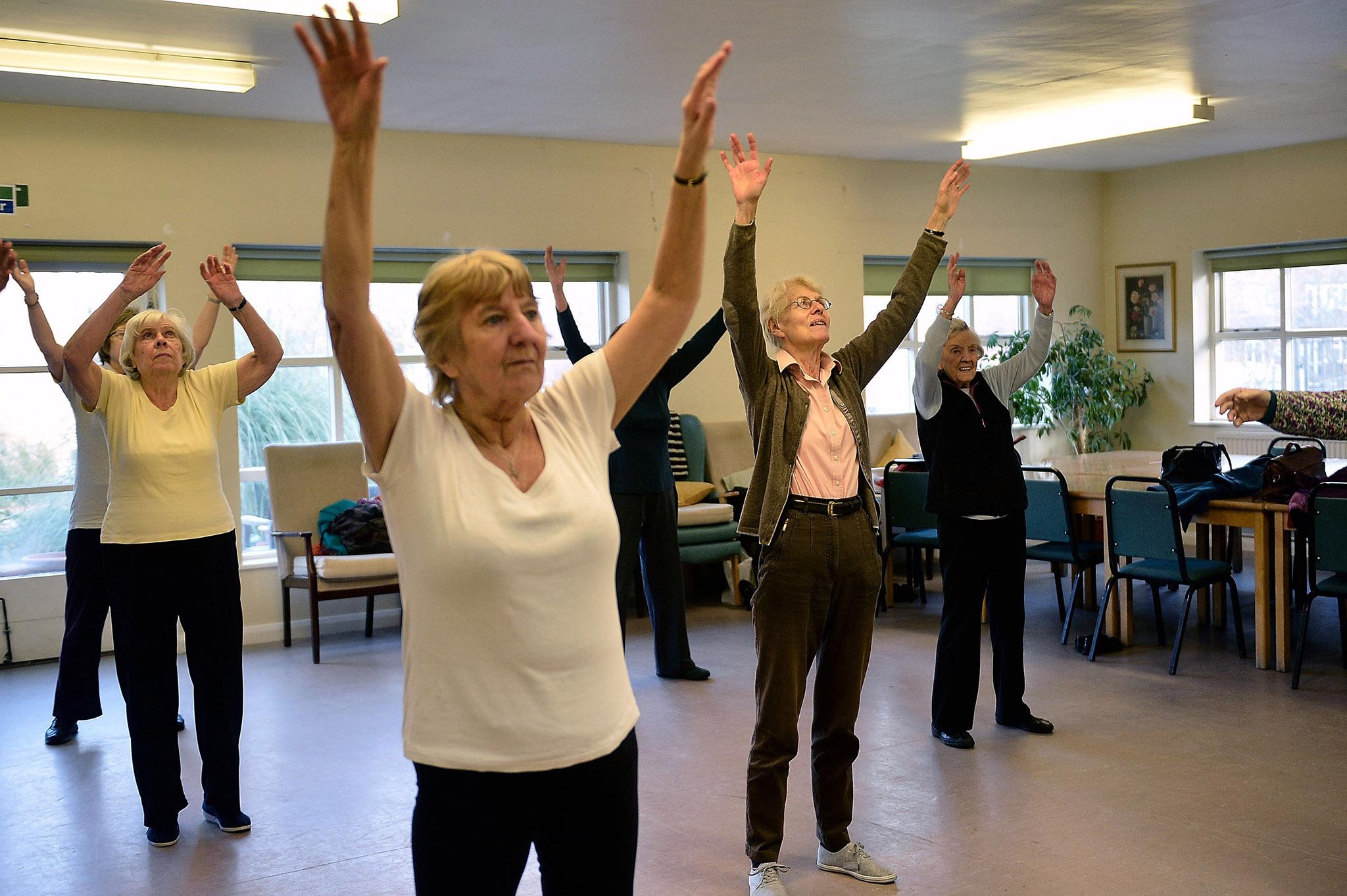Lonely elderly adults ‘forgotten people’, charities warn, as isolation highest since pandemic began
Loneliness reached its highest level of the pandemic this winter, ONS figures suggest

Your support helps us to tell the story
From reproductive rights to climate change to Big Tech, The Independent is on the ground when the story is developing. Whether it's investigating the financials of Elon Musk's pro-Trump PAC or producing our latest documentary, 'The A Word', which shines a light on the American women fighting for reproductive rights, we know how important it is to parse out the facts from the messaging.
At such a critical moment in US history, we need reporters on the ground. Your donation allows us to keep sending journalists to speak to both sides of the story.
The Independent is trusted by Americans across the entire political spectrum. And unlike many other quality news outlets, we choose not to lock Americans out of our reporting and analysis with paywalls. We believe quality journalism should be available to everyone, paid for by those who can afford it.
Your support makes all the difference.Charities have warned that the mental health of elderly adults is under threat as they become “forgotten people” amid increasing loneliness and isolation during the pandemic.
A total of 8 per cent of adults said they were “always or often lonely”, representing 4.2 million people, compared to pre-pandemic surveys where 5 per cent of adults – or about 2.6 million people – experienced the same level of loneliness.
Jill Brown, who runs social group Chums in west London, is on the front line of the situation, supporting over 60 elderly adults to stay connected to their community. She says the problem has gotten worse through the pandemic, with elderly adults often calling her in tears and unable to access adequate support or even speak to their GP.
“Loneliness has been a hidden, brushed-aside thing,” Ms Brown told The Independent. “They are forgotten people. The amount of people living on their own with no access to family or anything like that – they’re still being forgotten, that’s the problem. We’re bridging the gap in services that we should expect to have available. The NHS is not bridging that gap.”
Marion Wadsworth, 72, from west London, is a member of Chums and suffers from depression, anxiety and panic attacks as a result of her loneliness and social isolation. Disabled and living at the top of 42 stairs, she says it’s difficult to leave the house. “It’s horrible. It’s really, really, really horrible. To be in four walls constantly, it’s just horrible,” Ms Wadsworth said. “It’s worse than living in a submarine; you feel the walls are closing in and you can’t push them out.” She added that she’s struggled to book appointments with her GP and would be nowhere without the help of Chums.

The NHS planned to increase the number of elderly adults accessing talking therapies to address the mental health challenges caused by loneliness. In 2011 it set a target for 12 per cent of over-65s to be referred to these services; however, only 5.1 per cent have been referred, according to 2020-21 NHS figures – a percentage that has failed to rise above 10 per cent within the last five years. At the same time, antidepressant use among over-65s has increased by 3 per cent since the start of the pandemic.
Deborah Alsina, CEO of Independent Age, said the government needs to do a lot more to address the effects of loneliness on the mental health of older people.
“For some older people, the end of lockdown restrictions in the summer did not make much difference: there was no happy ‘return to normal’ for them,” she said. “They continue to face the same illness, worsening mobility, grief, loneliness or isolation – often in combination – as they did before and during the pandemic.
“The government and NHS must not overlook how the pandemic has affected older people’s mental health, or the barriers that prevent many of them from getting the help they need.”
Dr James Davies, head of the Council for Evidence-Based Psychiatry, warned that social issues such as loneliness were at risk of being over-medicalised, and advised that services like Chums – a form of social prescription – should be made more widely available to tackle the root cause of the problem.
“For the majority of elderly people, it isn’t a psychological impediment, it’s a social issue – where they are isolated; they don’t have a connection to community resources where local cohesion is broken down; where they are increasingly defined by the kind of society we live in as almost useless... they’re not good for the economy any more,” Dr Davies said.
He added that although social prescribing was happening in communities, it wasn’t happening “on a large enough scale” to meet the growing demand.
Gay Palmer, a social-prescribing link worker team lead, echoed these concerns, also conceding that while this type of provision was becoming more widespread, it wasn’t doing so quickly enough, with the pandemic slowing access. She added that voluntary services used prior to the pandemic, such as church groups and social activities, hadn’t reopened, creating an even greater deficit in services.
New advice from the clinical watchdog, NICE, recommends social activities as an alternative to antidepressants for people suffering from mild depression.
The National Academy of Social Prescribing (NASP) works with the NHS to increase the provision of such activities and services in communities across the UK. Jim Burt, programmes director of NASP, told The Independent that the demand for social prescribing is “high and growing” amid the challenge of loneliness.
“We are working very closely with the NHS and across government to help accelerate the rollout of social prescribing, and work with voluntary organisations and groups across the country to support the work they do in their communities,” he said.
“Many older people can of course find and take part in these activities for themselves, but others face a range of barriers to participation. Social-prescribing link workers have time to build trusting relationships, starting with what matters to each person, and help them connect to something that suits their individual circumstances.”
Join our commenting forum
Join thought-provoking conversations, follow other Independent readers and see their replies
Comments